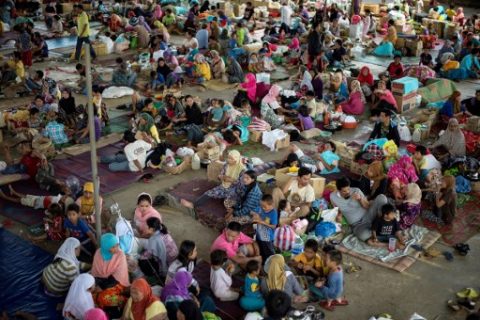
(Eagle News) — The Department of Health is urging mothers with new born babies displaced by the crisis in Marawi City to continue breastfeeding their infants to protect them from infections such as diarrhea and pneumonia.
“Women can continue breastfeeding during emergencies, most especially when the community supports them, despite misconceptions that they cannot,” stated DOH Secretary Paulyn Jean Rosell–Ubial.
The DOH said that in the light of the prevailing situation in Marawi City and the other areas where families and their children have been relocated, breastfeeding is still the best way to ensure the health of their babies.
“Breastmilk remains to be the standard food for infants and young children during these situations,” said a DOH news release.
“The Department of Health, the National Nutrition Cluster, and development partners reiterate the call to protect, promote, and support infant and young child feeding (IYCF) practices in disaster areas,” it said.
The DOH warned that the the use of breastmilk substitutes and artificial milk formula products can actually pose a higher risk of infections such as diarrhea and pneumonia, especially in the absence of clean, potable water and sanitary facilities.”
Republic Act 10821, otherwise known as “An Act Mandating the Provision of Emergency Relief and Protection for Children Before, During, and After Disasters and Other Emergency Situations,” mandates that vulnerable groups in these situations must be given safe spaces for rehabilitation after dire situations such as this, the DOH said.







